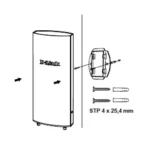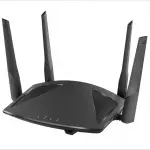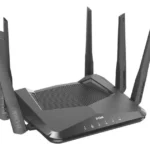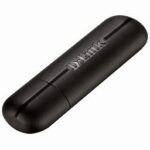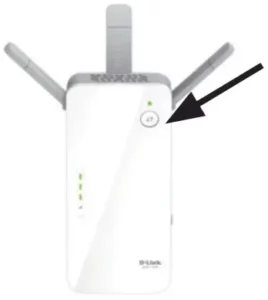

AC1750 Wi-Fi
Range Extender
DAP-1720
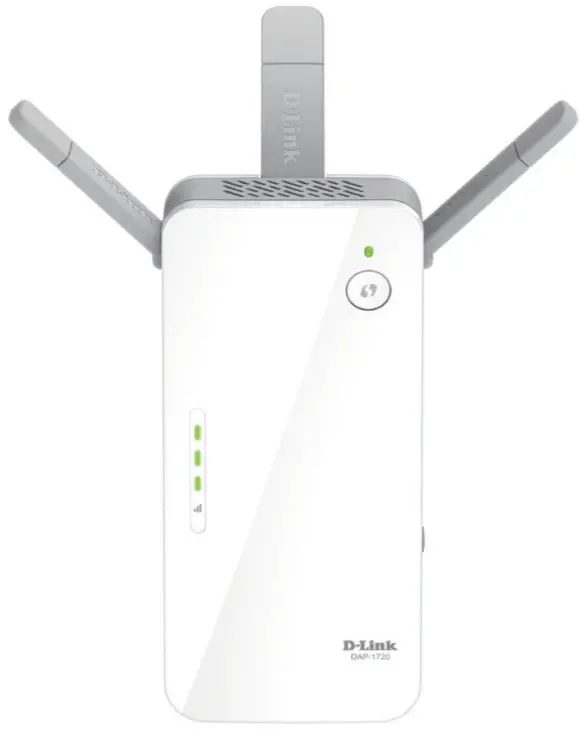
Quick Install Guide
Package Contents
 DAP-1720 AC1750 Wi-Fi Range Extender
DAP-1720 AC1750 Wi-Fi Range Extender
 Wi-Fi Configuration Card
Wi-Fi Configuration Card
 Quick Install Guide
Quick Install Guide
If any of the above items are missing, please contact your reseller.
Before You Begin
- Make sure the area that you want to plug the extender into has a solid connection to your router. Use a wireless laptop, tablet, or mobile phone in that area to test the connection to verify.
- If your wireless router or access point does not support WPS, follow the steps under Configure the DAP-1720 Using a Web Browser to connect to the DAP-1720 and run the Setup Wizard. If you are not sure how to enable WPS on your wireless router, please refer to your router’s user manual.
Product Overview

| LED | Color | Status | Description |
| Status LED | Red | Solid | The device is powering on/booting up. |
| Amber | Blinking | The device is ready but not connected to an uplink router. | |
| Green | Solid | This indicates that the DAP-1720 is securely connected to your wireless router or access point. | |
| Blinking | The WPS button has been pushed and the device is processing a connection. |
Signal Strength Indicators
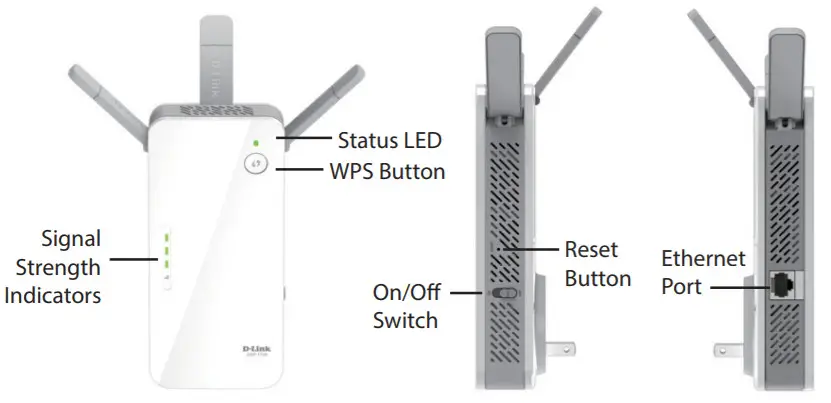
Connect to Your Router Using WPS
1.Find an available outlet near your wireless router. Plugin the DAP-1720 and wait until the Status LED is blinking amber.
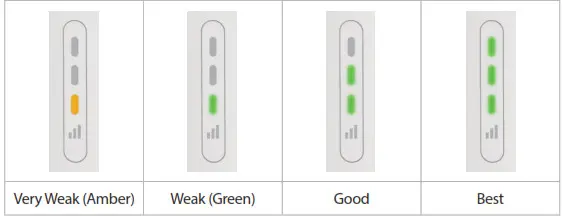
2.Press the WPS (Wi-Fi Protected Setup) button on your wireless router.
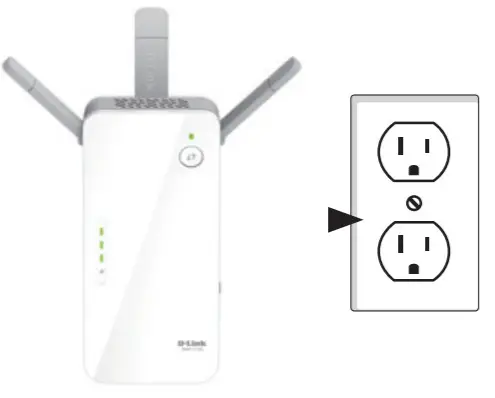
3.Within one minute, press the WPS button on the DAP-1720. The Status LED will start to blink green.
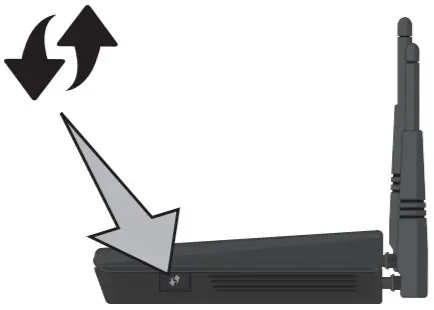
4.When the Status LED turns solid green, this indicates that the DAP-1720 is securely connected to your wireless router or access point. You can now unplug and move the DAP-1720 to a location between your wireless router and the area that you need wireless coverage.
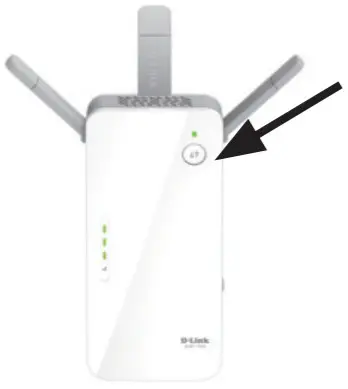

If the signal strength indicators are showing one single amber bar or if the DAP-1720 is not connecting, move the DAP-1720 to a wall outlet closer to your wireless router or access point.
Connect Your Wireless Devices
5.From your wireless device go to the Wireless Utility to display the available wireless networks.
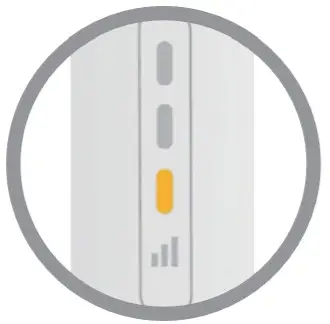
The SSID on the DAP-1720 will automatically be assigned the following:
- 2.4GHz (Your Router’s SSID)-EXT
- 5GHz (Your Router’s SSID)-EXT5G
The Wi-Fi password for the DAP-1720 will be the same as your router.
Repeat step 5 to connect additional Wi-Fi devices to the DAP-1720.
6.Your device is now connected to the DAP-1720 and can connect to your wireless router. If you want to change your network settings, password, etc., follow the steps on the next page to configure the DAP-1720. To connect additional devices, repeat step 5.
Your setup is complete!
Configure the DAP-1720 Using a Web Browser (Optional)
You may log into the web-based configuration utility on the DAP-1720 to perform the following tasks:
- Upgrade firmware
- Change wireless and network settings
- Change the login password
1.Plug the DAP-1720 into an available outlet near your router. You may move it to a more suitable location after configuration.
2.Open the wireless utility on your wireless device or computer. Select the Wi-Fi Network name (from the Wi-Fi Configuration Card) and enter the password. You may also connect the DAP-1720 to your router or computer using an Ethernet cable.
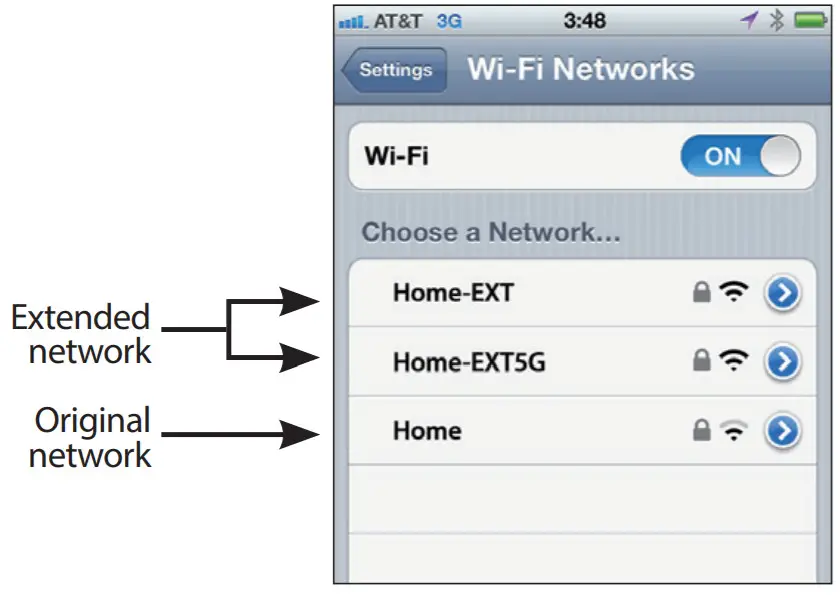
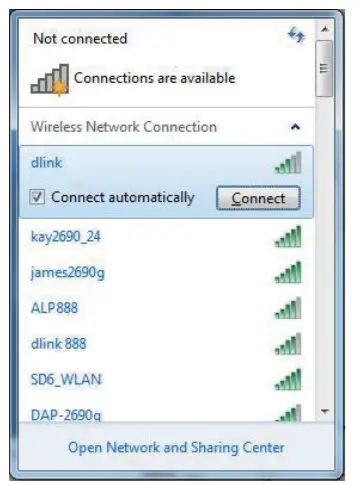
3.Open a web browser (e.g., Internet Explorer, Firefox, Safari, or Chrome) and enter http://dlinkap.local./. You may also enter the IP address of the DAP-1720.
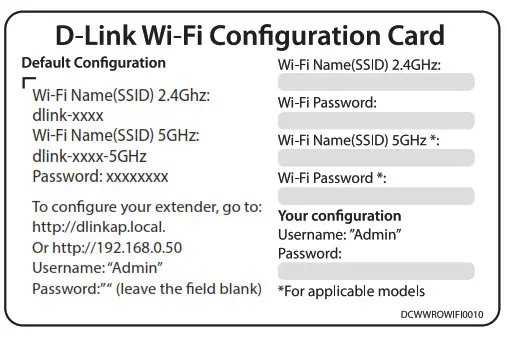
Note: The default IP address is 192.168.0.50. Once the DAP-1720 connects to your router, it will get assigned a new IP address based on your router/network’s DHCP settings. You will need to log in to your router and view the DHCP table to see what IP address was assigned to the DAP-1720. The MAC address is printed on the label on the device.
4.Once you connect, the login page will appear. Enter your password and click Log in. By default the password is blank.
Note: The default IP address is 192.168.0.50. Once the DAP-1720 connects to your router, it will get assigned a new IP address based on your router/network’s DHCP settings. You will need to log in to your router and view the DHCP table to see what IP address was assigned to the DAP-1720. The MAC address is printed on the label on the device.

5.The home page will display your current status. A green checkmark represents a successful connection to your wireless router or Access Point (AP). A red X means there is not a connection to your router or access point. Click the Uplink Router icon.
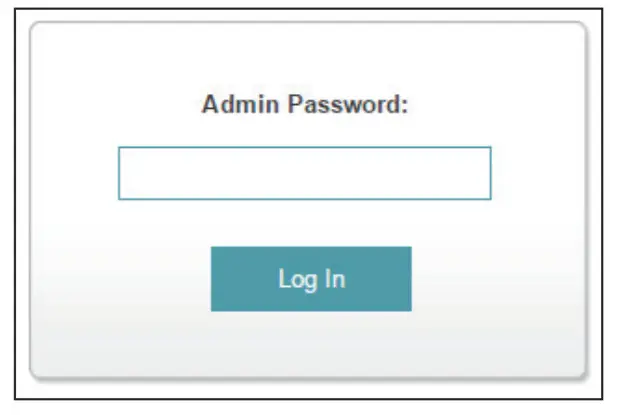
6.Select your language from the drop-down menu and then click Next.
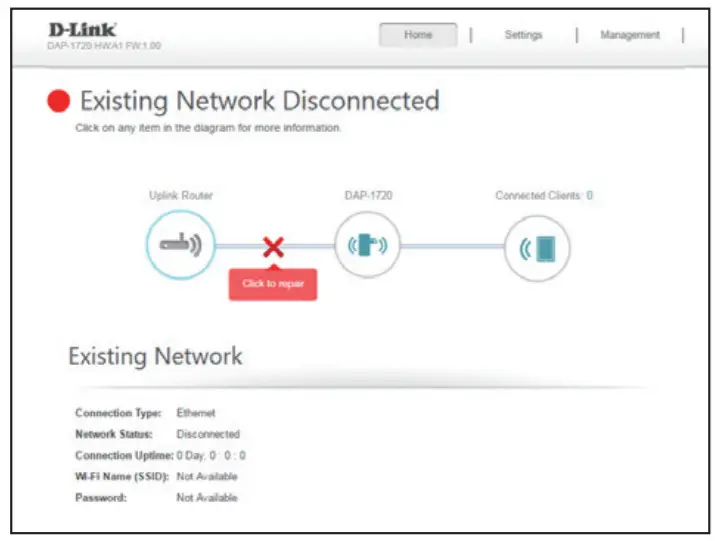 7.The WPS process will be started on the DAP-1720 automatically. Press the WPS button on your wireless router or access point.
7.The WPS process will be started on the DAP-1720 automatically. Press the WPS button on your wireless router or access point.
If you want to manually select the wireless network you want to extend, click Extend an existing wireless network and go to the next page. If you want to connect the DAP-1720 to a wired network using an Ethernet cable, click Add wireless to your wired network and skip to page 11.
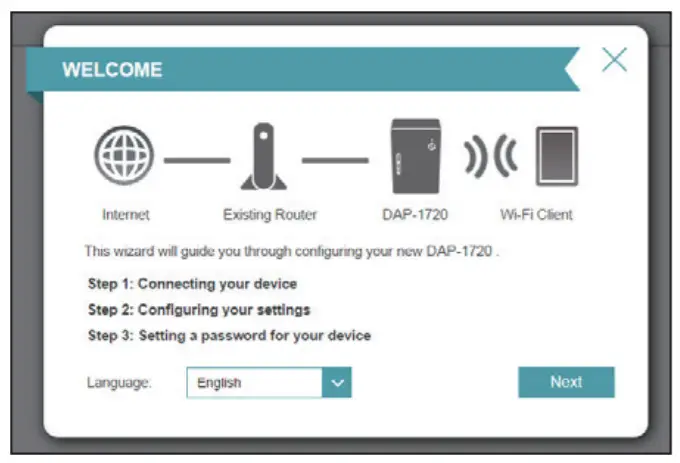 If you clicked “Extend an existing wireless network”
If you clicked “Extend an existing wireless network”
8.A list of detected wireless networks within range of the DAP-1720 will appear. Click on the network you want to extend. If you want to manually type in the Wi-Fi network name (SSID), click Manual at the bottom.
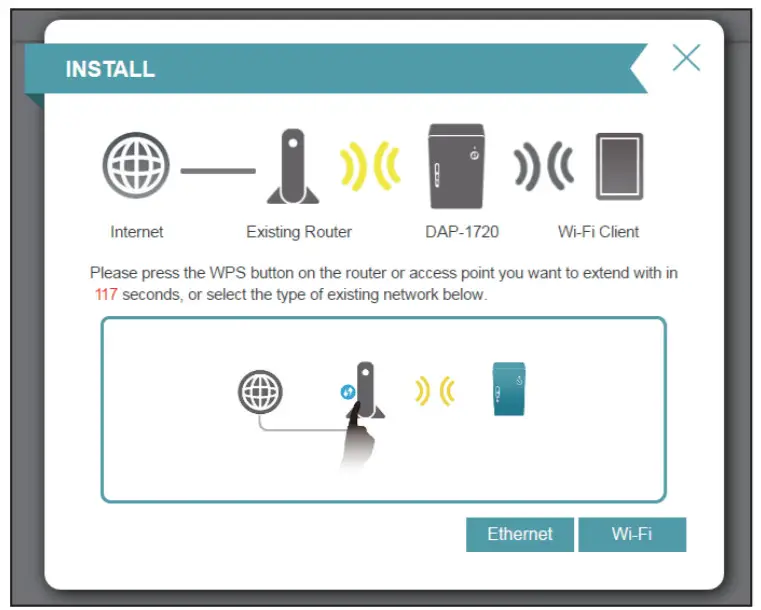
9.If your wireless network is secure/encrypted, enter the Wi-Fi password and click Next to continue.
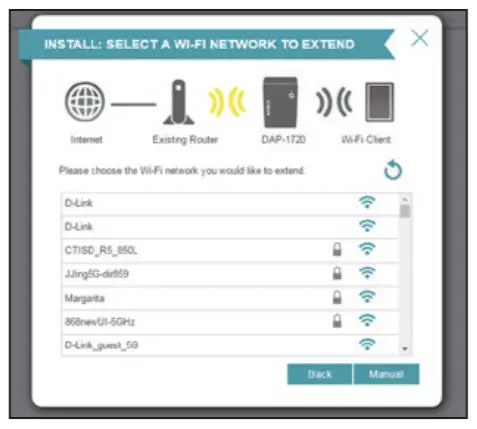
If you clicked Manual, enter the SSID and security information (Wi-Fi password) of the wireless network you want to extend and click Next to continue.
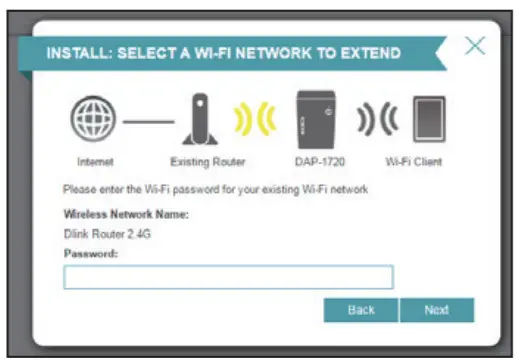
If you clicked “Add wireless to your wired network”
8.Connect the DAP-1720 to your network using an Ethernet cable. The wizard will automatically go to step 10 on the next page. If you wish to connect the DAP-1720 later, click Skip.
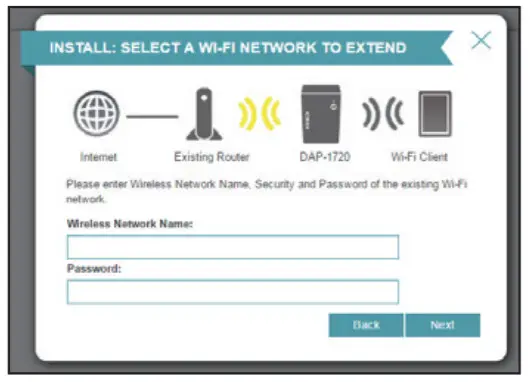
10.Enter a new Wi-Fi network name for the DAP-1720 and enter a new Wi-Fi password. Click Next to continue.
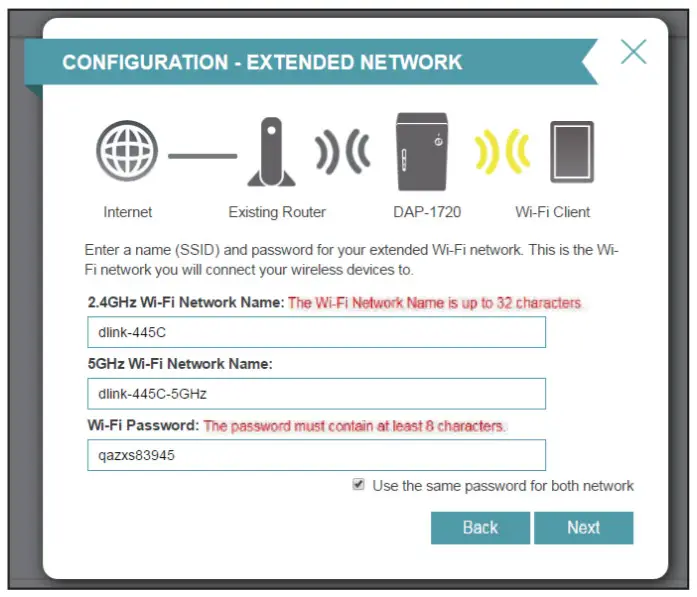
11.Enter an administrator password for the DAP-1720. This is the password you will use to enter the web-based configuration. Click Next to continue.
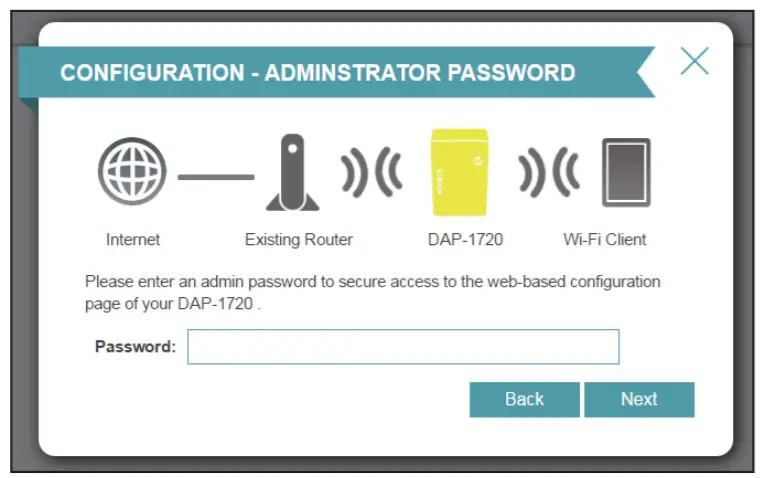
12.A summary page will display your settings. Click Finish and the DAP-1720 will reboot. If you want to make any changes, click Back.
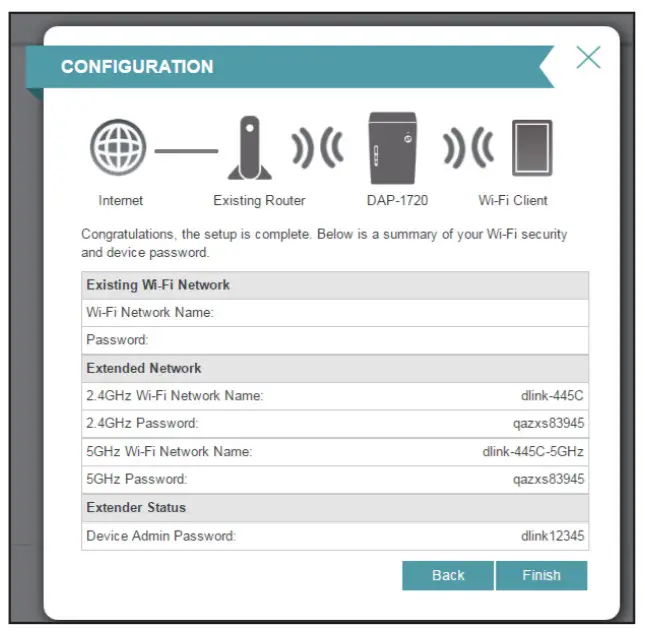
The setup is now complete. Allow about two minutes for the DAP-1720 reboot. Verify that the Status light is green and the signal strength indicators are lit. You can now unplug the DAP-1720 and connect to a different location if needed.
Troubleshooting
Why can’t I connect to my wireless router or does my wireless connection drops?
- Verify that the DAP-1720 is within range of your wireless router. Try plugging it into a location closer to the router and verify the Status LED is solid green.
- Note that when repeating a wireless signal from a router or access point, devices connected to the repeater will not get the same speed/throughput as when connected directly to the router.
How do I change the wireless settings on the DAP-1720?
- Open a web browser (e.g., Internet Explorer, Firefox, Chrome, or Safari) and go to http://dlinkap.local./ or enter the IP address (http://192.168.0.50 by default).
- At the login screen, enter your password and click Log in.
- Go to Setup > Wireless.
- Enter a new Wi-Fi Network Name (SSID) for the 2.4GHz and 5GHz bands, and modify the security (Wi-Fi password) settings as needed.
- Click Save.
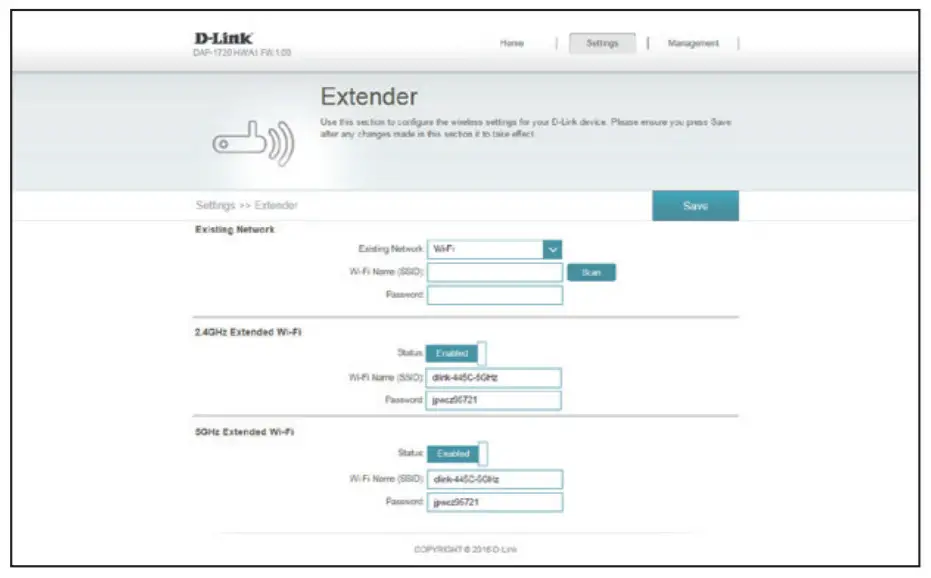
Note: If you have changed the Wi-Fi Network name, the device you are currently using to connect to the DAP-1720 will drop. You will need to open your wireless utility and connect to the DAP-1720 using the new network name and password.
Where should I place my DAP-1720 when using it as a range extender?
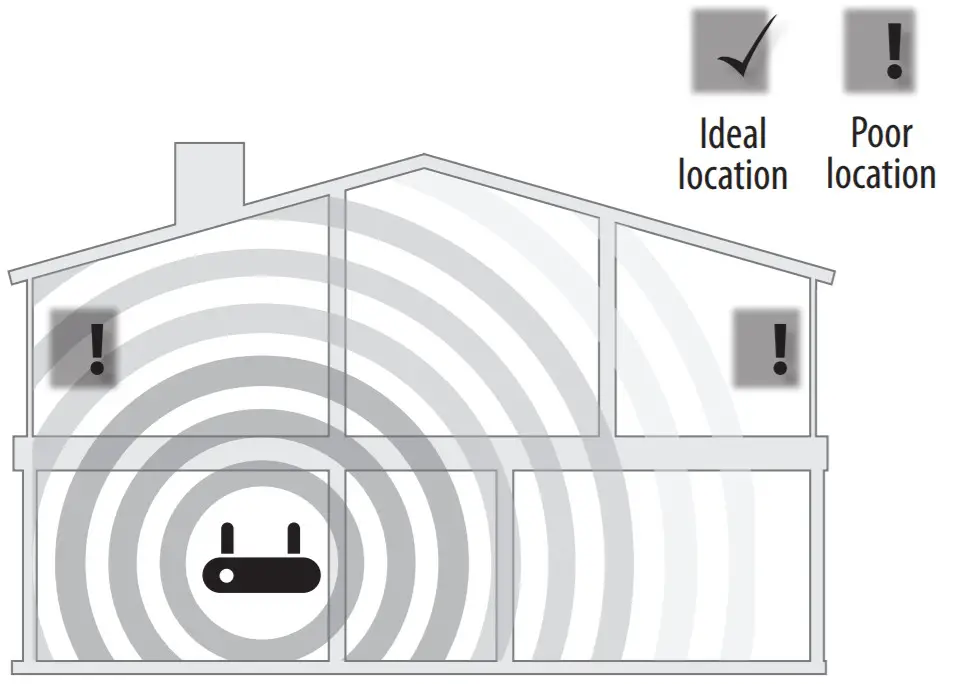
A Range Extender only works as well as the signal it is extending.
Therefore, proper placement of your DAP-1720 is important in achieving desired results.
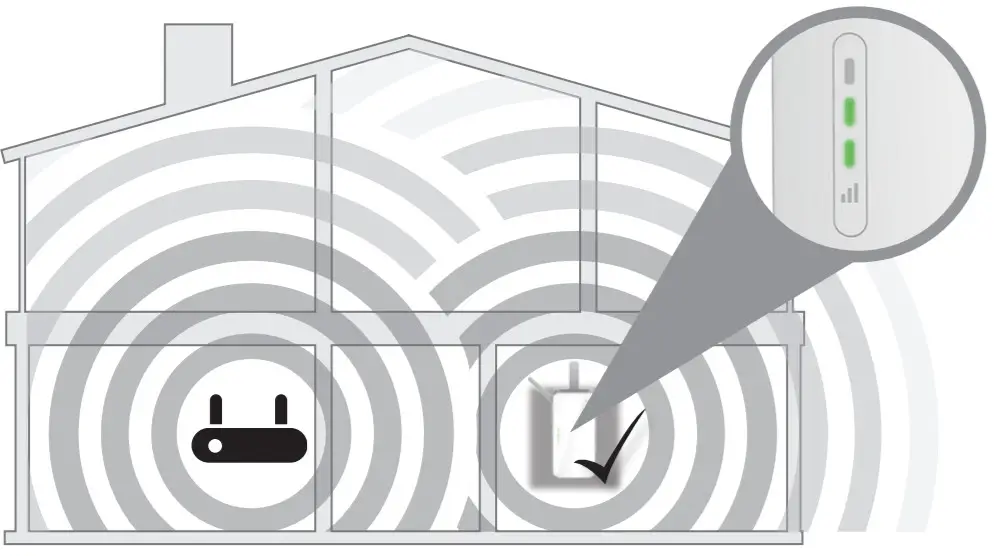
For best performance, place your DAP-1720 in between your router and your dead zone, making sure it’s placed in a location where the Wi-Fi signal is still strong. Use the Smart Signal Indicator to help find a location with a strong signal. The more bars lit on the signal indicator, the stronger the Wi-Fi signal is.
What if I forgot my DAP-1720 password?
- If you forgot your password or want to reset the DAP1720
back to the factory default settings, press and hold the reset button on the bottom of the extender using a paper clip and release after a minimum of 10 seconds. The Status light will turn red.
Note: This process will erase all your settings. - You may repeat the WPS process on page 5. Follow the steps under Connect to Your Router Using WPS.
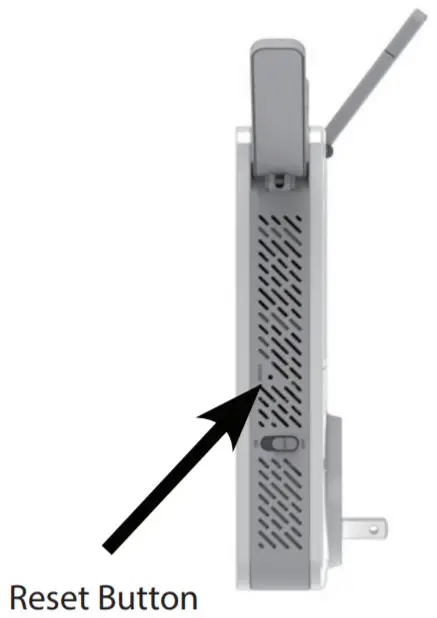
GPL Code Statement
This D-Link product includes software code developed by third parties, including software code subject to the GNU General Public License (“GPL”) or GNU Lesser
General Public License (“LGPL”). As applicable, the terms of the GPL and LGPL, and information on obtaining access to the GPL code and LGPL Code used in this
product, are available to you at:
http://tsd.dlink.com.tw/GPL.asp
The GPL Code and LGPL Code used in this product are distributed WITHOUT ANY WARRANTY and are subject to the copyrights of one or more authors. For details, see the GPL code and the LGPL code for this product and the terms of the GPL and LGPL.
Written Offer for GPL and LGPL Source Code
Where such specific license terms entitle you to the source code of such software, D-Link will provide upon written request via email and/or traditional paper mail the applicable GPL and LGPL source code files via CD-ROM for a nominal cost to cover shipping and media charges as allowed under the GPL and LGPL.
Please direct all inquiries to:
Email: [email protected]
Snail Mail:
Attn: GPLSOURCE REQUEST
D-Link Systems, Inc.
17595 Mt. Herrmann Street
Fountain Valley, CA 92708
GNU GENERAL PUBLIC LICENSE
Version 3, 29 June 2007
Copyright (C) 2007 Free Software Foundation, Inc. <http://fsf.org/>
View the full GPL Code Statement at http://www.gnu.org/licenses/gpl.html
Notes
Technical Support
This guide is for the first-time configuration. Please refer to the user manual to learn more.
U.S. and Canadian customers can contact D-Link Technical Support through our website.
USA
 http://support.dlink.com/DAP-1720
http://support.dlink.com/DAP-1720
Canada
 http://support.dlink.ca/DAP-1720
http://support.dlink.ca/DAP-1720

Version 1.02(NA)_85X125
December 12, 2016
6AP1720Q.D03G
©2017 D-Link. All rights reserved. D-Link and the D-Link logo are trademarks or registered trademarks of D-Link Corporation or its subsidiaries. All other third-party marks mentioned herein may be trademarks of their respective owners. This publication may not be reproduced, in whole or in part, without prior express written permission from D-Link Systems, Inc.
